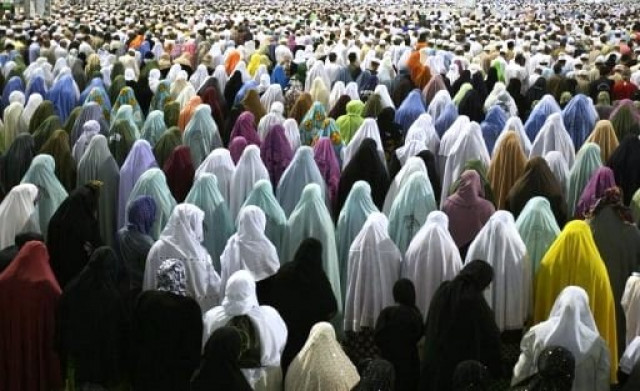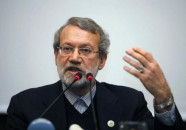Saudi religious cop says 'no need' for women to cover up
Kingdom's ban on gender mixing should only be applied to men and women meeting in secret.

Sheikh Ahmed al-Ghamdi, outspoken head of the Makkah branch of the Commission for the Promotion of Virtue and Prevention of Vice, also said there was nothing in Islam to prevent women from driving, despite the Saudi ban on the practice.
"There is a difference in interpretation of the (Quranic) verse... which leads some scholars to rule that the whole body must be covered... However other scholars approve showing the face, hands and elbows. And some even okayed the hair," he said.
He said the kingdom's mixing ban should be applied only to men and women meeting in secret, not in public places, a rule normally enforced by the religious police.
Islam "orders a woman to cover her body to allow her to participate in social life, not to prevent her from doing so," he said.
The women in the audience, all clad in the all-black shroud-like abaya they must wear, broke out in applause.
Ghamdi, who was mysteriously fired and reinstated in April after breaking ranks with the religious police to endorse mixing, was speaking at a conference on "Women's Participation in National Development", where the hot issue was the barriers posed by Saudi Arabia's ultra-strict ban on women working.
Because Saudi women are not permitted to mix with unrelated men, must have a male guardian and are not permitted to drive, there are huge limitations on their employment opportunities.
Recently, top religious officials strongly objected to a labour ministry effort to allow Saudi women to work as cashiers in supermarkets.
Labour Minister Adel Fakieh said on Tuesday that 200,000 women in the kingdom, or 44 percent of the workforce, were unemployed, and that of them 157,000 had degrees above the level of high school.
"The unemployed women are educated above high school, while unemployed men mostly don't have degrees," he said.
Meanhwile, the country's sole female minister, Deputy Education Minister Noura al-Fayez, also came in for criticism for not having achieved much in terms of women's educational advancement and opportunities.
She urged the audience of Saudi women to have patience, and told them she could do little about certain issues, like the high accident rate for rural women teachers who must travel great distances to work because they are not permitted to live away from their families.
On Monday, King Abdullah's daughter Princess Adela bint Abdullah said a greater effort was needed to provide jobs for Saudi women.
"Women's participation (in the workforce) is behind expectation. A society cannot walk with a limping leg," she said.



















COMMENTS
Comments are moderated and generally will be posted if they are on-topic and not abusive.
For more information, please see our Comments FAQ